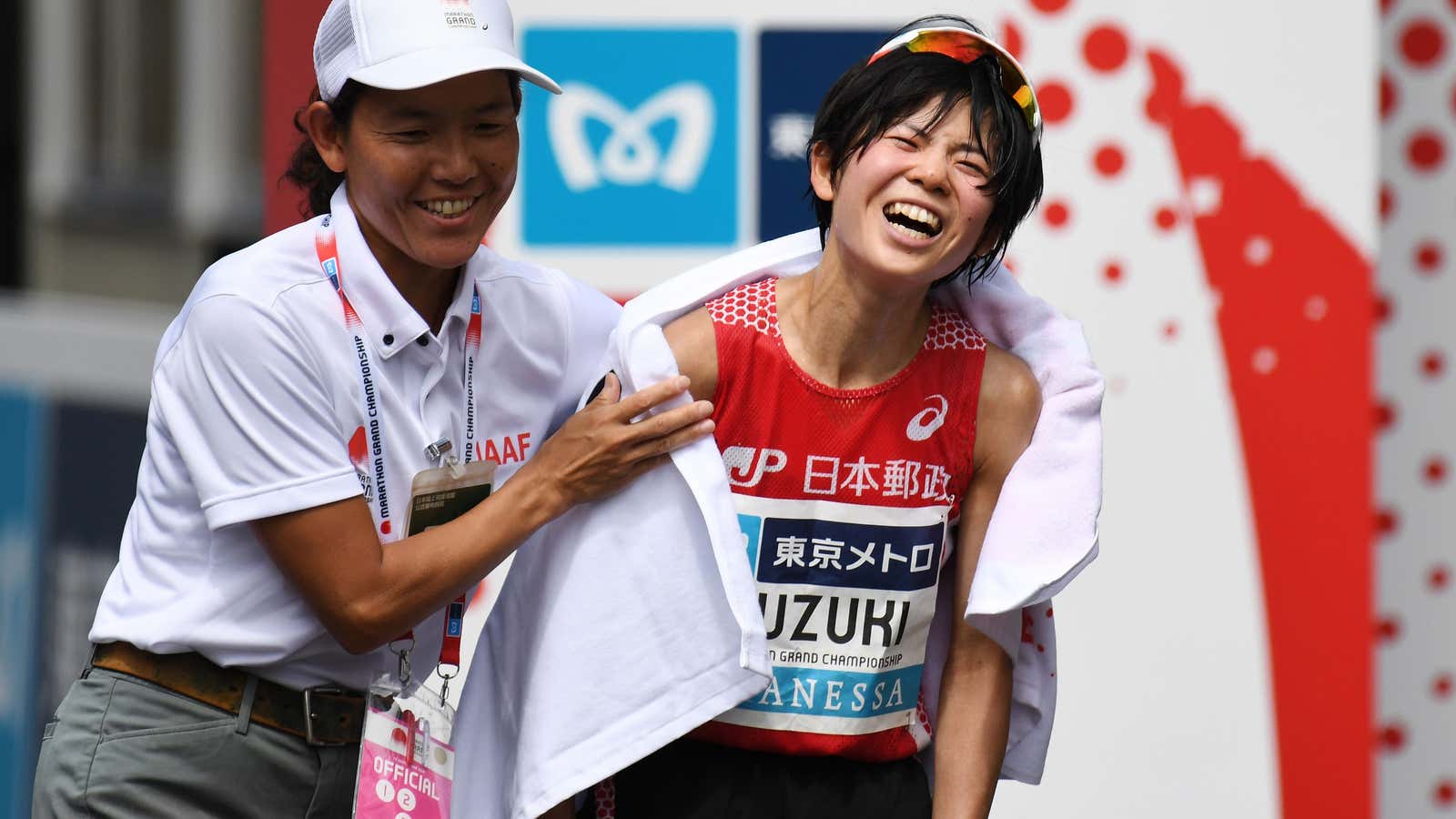Marathon runners will swap sweltering Tokyo for the cooler climes of northern Japan in the 2020 Olympics, and the capital city’s governor isn’t happy about it.
The International Olympic Committee (IOC) and Tokyo governor Yuriko Koike came to the decision to hold the event in Sapporo, 500 miles (805 km) north of Tokyo, at a meeting today. This follows months of discussions over how to mitigate concerns over the heat in Tokyo, though Koike was emphatic that she reluctantly agreed to the venue change, calling it a “painful decision.”
Temperatures in Tokyo regularly hit above 30°C (86°F) in July and August, with the heat often accompanied by high levels of humidity. The 1964 Summer Olympics in Tokyo were moved to October to address that problem, but the IOC is keen to keep the event in the summer months in order to maximize TV viewership in the US, from which the sports body earns fees.
The Tokyo Marathon, one of the key marathon races in the world, is held every year in February or March.
To stave off moving the 2020 marathon and walking events to the northern island of Hokkaido, the Tokyo Olympic preparation committee had even considered starting the events as early as 3am, local media reported. The IOC suggested shifting the events to Sapporo earlier this month, after competitors collapsed in the heat during a race in Qatar in September, which began at midnight.
A series of heatwaves in recent years in Japan has intensified worries of overheating during the Olympics, prompting medical professionals and academics to raise concerns over holding long-distance running events in the city during the summer. Organizers in Tokyo have experimented with resurfacing the roads with a cooling material and using artificial snow machines and mist towers to keep both athletes and spectators cool.
Sapporo, the biggest city in Hokkaido, enjoys lower temperatures during the summer months but is better known for its culture of winter sports. The city played host to the Winter Olympics in 1972, and is a gateway to world-famous ski resorts elsewhere on the island. Though the issue of overheating will be overcome by relocating the event to Sapporo, some athletes told the Associated Press that they’ll miss the Kodak-moment finish when athletes enter the Olympic stadium.
